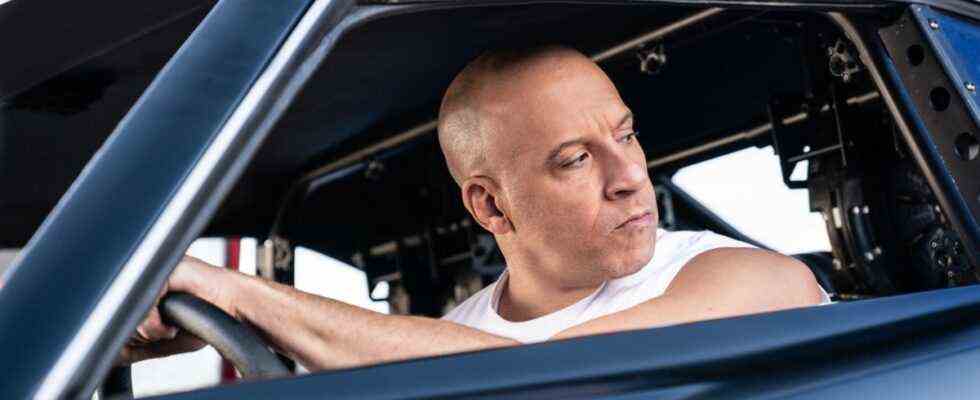Film Meerkat and Moon Rocket Children’s film
(Photo: Barnsteiner Film)
Meerkat and moon rocket
Sarah Zapf: In the children’s film, in the end, courage triumphs over the inner “monster”: fear. The director’s story Hanneke Schutte tells of the girl Gideonette who, faced with an impending curse, sinks into an illusory world fraught with irrational fears. Only the dreamy friendship with the boy Bhubesi shows her the beauty of life.
Fast & Furious 9
Fritz Göttler: F9 takes Vin Diesel and his family to the Montecito area, Tokyo, Edinburgh, Tbilisi. It’s about the Ares, a super hacking device. The action choreography by Justin Lin is, even if shot with real speedsters, pure animation cinema. The narrative turns are as fast and furious as the car hunts, a lot is radically turned upside down, and the dead return.
Home nature
Lena Reuters: Our nature – how is it? This question answered Jan Haft differentiated and visually stunning. With close-ups, drone images and time-lapse footage, he presents Germany’s biotopes – from the bearded vultures in the Alps to the gray seals in the North Sea. It impressively documents how industrial agriculture destroys nature.
Hunted – forest dieback
Dennis Müller: Eve meets a man in a bar who turns out to be a woman-hating psychopath. With luck, she can flee into a forest. There she turns from the hunted to the hunter. The way as director Vincent Paronnaud Staging nature as an ally of the heroine often looks clumsy. A good arc of suspense makes the revenge film quite entertaining.
In the fire – two sisters
Anna Steinbauer: Two sisters between the fronts: The German Bundeswehr soldier Rojda with Kurdish-Iraqi roots has been transferred to Iraq to look for her missing sister Dilan, who fights the Islamists as a Peshmerga fighter. Rojda’s search turns out to be a painful confrontation with one’s own identity. Daphne Charizanis The second feature film tells a moving heroine story, which sometimes skims the cliché, but cleverly focuses on the psychological component of the war.
Minari – where we put down roots
Fritz Göttler: An exciting, not so easy childhood in the country in America, in a family that immigrated from Korea. Lee Isaac Chung mixed memories of his own youth with the American classic “My Ántonia” by Willa Cather. Seven-year-old David has a hole in his heart and mustn’t exert himself, his mother doesn’t want to live in a house on wheels, his father dreams of independence in agriculture – but of course Arkansas is not the Garden of Eden. And then one day the grandmother will be brought in, Yuh-Jung Youn won an Oscar for this role. She swears, likes to play cards. And has brought minari seeds, wild water celery.
Tomorrow is ours
Fritz Göttler: Everyone knows the Fridays for Future, this film shows us Gilles de Maistre a couple of children who are even younger than Greta and who are committed. José Adolfo from Peru founded a bank for children when he was seven. They collect waste and waste paper and get the money from the sale. Aïssatou is fighting against the marriage of underage girls in her native Guinea, Arthur from Combray, France, aged ten, provides the homeless with baguettes, coffee and blankets. It’s a perfectly made documentary film, the engagement of the kids is amazing, touching, spontaneous, thrilling – and scary. Because they are so eloquent that they could dominate any talk show.
Next door
Kathleen Hildebrand: In his successful, bitterly angry directorial debut, for which Daniel Kehlmann wrote the screenplay, plays Daniel Brühl the worst version of himself – a rich rascal who distributes the twenty euro bills to everyone around like other people not even fives. In his local pub, Ossi Bruno (Peter Kurth) then takes him apart in a wonderful dialogue duel. Bruno, the overlooked loser in turn, knows more about Daniel’s life than he does himself and this knowledge becomes more threatening with every revelation. You learn: Worse than Google and Facebook is just a frustrated neighbor.
Patrick
Josef Grübl: Patrick’s real name is Mario and comes from Portugal. The twenty-year-old lives with an older man, but has sex with underage girls. He shoots pornographic videos, has already been in front of the camera, is both a perpetrator and a victim. This is what the Portuguese actor talks about Gonçalo Waddington in his directorial debut, which addresses the consequences of child abuse.
Sweat
Lena Reuters: There is a discrepancy between celebrity cult and loneliness that has shaped the careers of many stars. Magnus von Horn shows the depths of the glamorous online existence of an influencer. The story of a woman who appears narcissistic in her pursuit of a flawless image, but who gains nuances in the course of the film, shows exciting approaches. Unfortunately, some of the storylines seem constructed.

